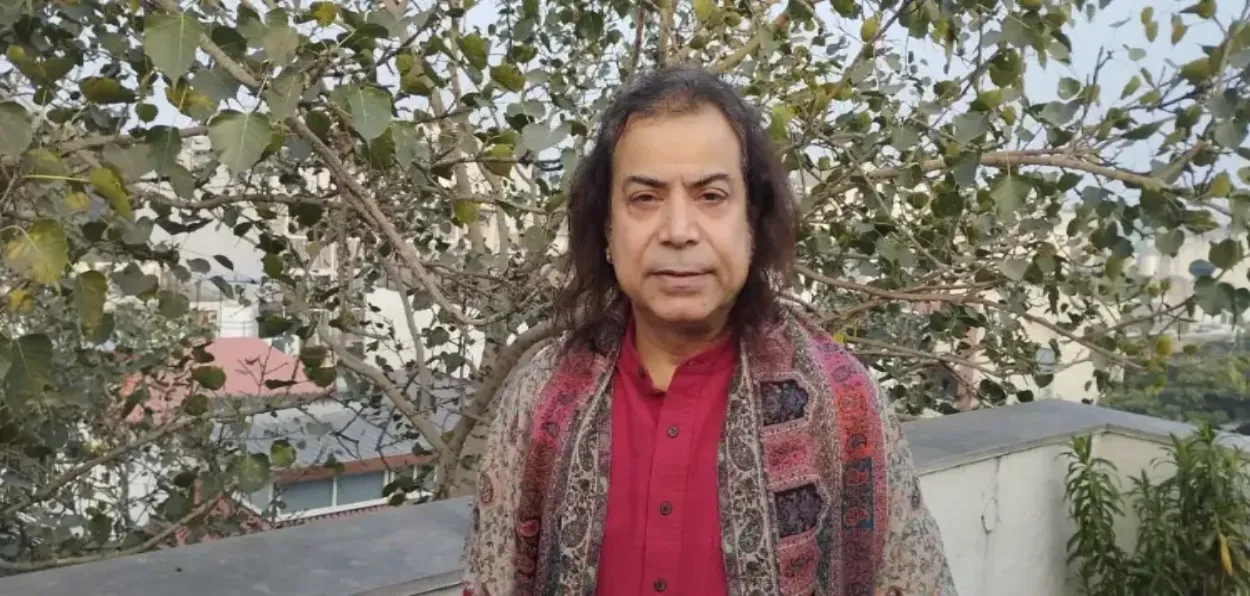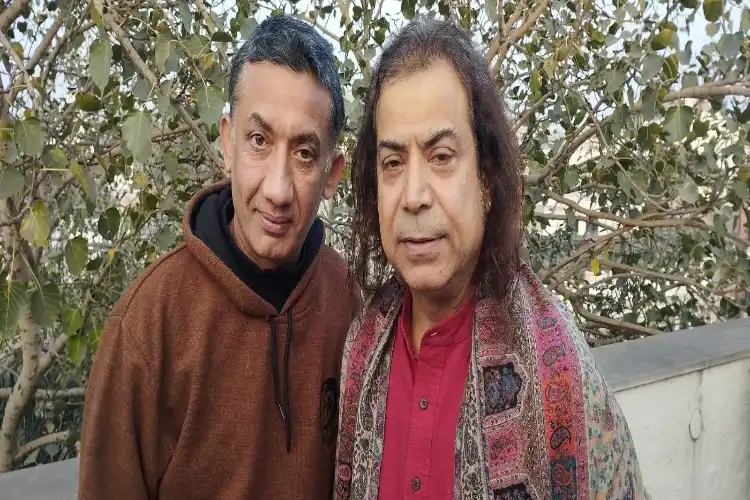
Ghaus Shivani/New Delhi
Music has the power to unite people locked in a conflict. It can have a saluting impact on the situation in Kashmir where violence has come down and normalcy has returned but one key element missing – the bond between Kashmiri Muslims and Hindus. The latter left in hordes three decades ago to escape violence and killings and one of them was Dhananjay Kaul, the renowned Kashmiri singer whose concerts are a rage among the community spread across the world.
Dhananjay Koul sings Ghazal, Sufi, and Thumri, and his concerts are organized in different locations in the world. Tabla artist Nawaz Rashid Zafar, who accompanies him, is also a master of the instrument as he teaches in several musical institutions.
However, Koul's singing journey started with a traumatic incident. It is still fresh in their memory and a cause of constant pain. The memory of his picturesque village of Safapur located on the banks of Manasbal Lake. He played in the foothills of hills swathed with lush green trees and picturesque peaks. The charm of the environment was further accentuated by the beautiful songs of Hindu-Muslim brotherhood.
His father was a singer and taught music to Muslim children of the village.
"I came to Delhi in 1990 after writing my high school exams," says Dhananjay Kaul, who lives in Greater Noida, Uttar Pradesh in the Delhi NCR region with his actor-writer wife Anjalee Ada and their son. Soon his money was over and he left for Jammu. “I wanted to go back home when I came to know that close to our house there was an explosion due to a bomb. And there was something that I was not made aware of and I found out later - my father was also on the hit list of terrorists.”

Dhananjay Kaul with Nawaz Rashid Zafar
Back in the early nineties, terrorism was commonplace in Kashmir. The terrorist organizations had branded prominent Kashmiri Pandits as anti-movement (Read terrorism) and prepared hit lists of their names at mohalla and village levels. The same lists would be pasted on the walls or electric poles for everyone to read. The names included were supposed to be targets of terrorists and many would leave Kashmir immediately.
“My father's disciples tried to warn him. Father taught music to about 250 students. Back then there was no distinction between a Hindu and a Muslim in Kashmir”.
Speaking about his village Dhananjay says there were only five Pandit families in the village which had a population of 10,000 to 12,000. My father, who returned from Sanyas (a state of renunciation many Hindus take to lead a life of an ascetic) took up the responsibilities of looking after huge swathes of agricultural land that our family owned. So, when Dadaji passed away, the people elected my father Sarpanch and remained in the position for 20 years.”
Going down memory lane, Dhananjay Kaul says everything in his life was related to the Manasbal Lake. “Manasbal is one of the most beautiful lakes in the world. We had a library in our house. All the students also came to study,” he says.
Almost all of his father's disciples were Muslims. They warned him not to venture out of the house since terrorists from other villages could be monitoring his movements. “The boundary wall of our house was high and they couldn't spy on him. However, One night they planted an (Improvised explosive device (IED) and triggered an explosion. Luckily everyone survived. At the time of the explosive, my brother, aunt and father, and our neighbor Ghani Sheikh Sahib – who is just like my father's younger brother - were there.”
Dhananjay Kaul
Everyone was sleeping on the other side of the wall when the explosion happened. Everyone fainted at the sound. It happened on April 2, 1991, and I read about it in the newspaper of April 4 in Jammu, 300 km away.”
He says this incident led to everyone in his family leaving their high house, village, peaks, the lakes. “However they picked a few essentials and thought they would return soon but it is now 33 years and we have still not returned.”
Dhananjay Kaul says he joined his family in Jammu and later they moved to Delhi where life as a displaced family was difficult. He started singing but didn’t get support from any institutions. However, he bagged assignments from All India Radio, Doordarshan, and Punjab Academy, etc. He as an artist was growing.
He recalls his excitement when he was invited by the Punjab Academy to Chandigarh and the Indian Express interviewed and published it.
Dhananjay says, “It was the time when I had to earn from my singing and also do a lot of riyaz (vocal cord training). Had my circumstances of life been better, maybe I would have spent more time in riyaz.”
He wanted to go to Mumbai where one can become commercially successful. Somehow it did not happen. He recalls that once he went to actor Govinda's house where the actor’s brother Kriti welcomed him.
He treats Govinda's mother as his teacher. “She knew my father through letters.’
Dhananjay Kaul says that he did not stay in Mumbai for long as he found no support from any quarter and returned to Delhi.
“For the last ten years, I have survived as an artist because of the West. I found work in America. Got work from Gujarat in India where in 2004, a company supported me. The owner of the company in Ahmedabad is a millionaire, he is just like my brother. . And then I came to Murari Bapu Ji's Ashram. After 2004, I rediscovered myself.”
The classical singer who is popular from Kashmir to the USA says that he enjoys singing Sufi songs and such songs are popular in Kashmir. People working in the fields also leave their work and come to listen to it.
He says he tried to make some changes in the Kashmiri songs and singing and it earned him criticism at first. However, soon people accepted his idea.
Dhananjay Kaul explains that his grandmother was fond of singing and remembered many compositions. He recalls three Kashmiri women who revolutionized Kashmiri poetry. The first one is Lalla Deed, also known as Pandit Lalleshwari or Lalla Arifa. Her poetry is about the love of God and the philosophy of Life. The second is Habba Khatoon, a woman who belonged to a poor family but got a chance to become the queen of Kashmir. The third was Arnimal.
Coincidentally, these three women experienced a lot of suffering in their lives which made their poetry poignant and relatable to all the Kashmiris.
Commenting on the current situation in Kashmir, Kaul says the situation seems to have changed for the better but I believe, art and cultural revival is possible only with artists, poets, Sufis, and saints. Doing it is so easy: people in positions can do it. “In my village, there is a dargah of Sufi saint Rahim Sahib. Its Sajjadanahin (caretaker) has been telling me for two years that I have to go back to my home.”
ALSO READ: Faryal Shadab of Noida proves there is no age for playing golf
Two years ago, after July 2021, he was scheduled to hold a concert in the village and some 20,000 people had signed up as audiences. “I have no idea why it was canceled at the last minute. People love me so much as someone of their own. It’s because I belong to a family whose generations lived in the village. People leave their plows in the fields and come to listen to my songs.”
